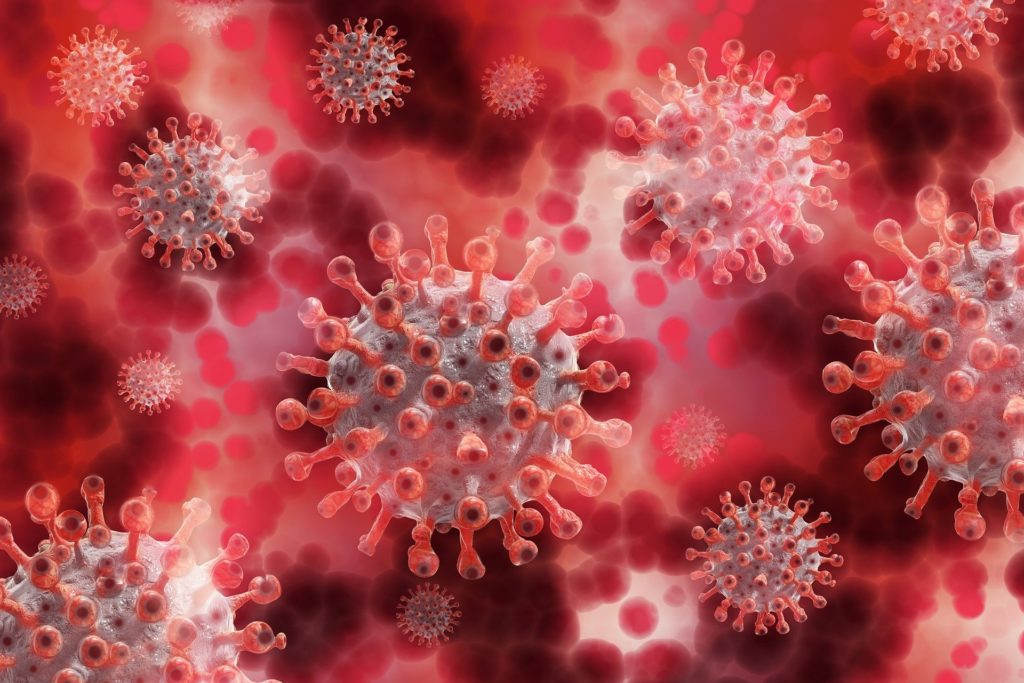- Calls to this hotline are currently being directed to Within Health, Fay or Eating Disorder Solutions
- Representatives are standing by 24/7 to help answer your questions
- All calls are confidential and HIPAA compliant
- There is no obligation or cost to call
- Eating Disorder Hope does not receive any commissions or fees dependent upon which provider you select
- Additional treatment providers are located on our directory or samhsa.gov
Does Having an Eating Disorder Increase My COVID-19 Risk?

COVID-19 has filled all of our lives with fear. That being the case, you may not be enthused to read yet another COVID-centric article. The psychological and emotional overwhelm that can come from reading all about COVID symptoms, cases, vaccines, risks, etc., all while living in a COVID-focused world, can be exhausting.
My hope is that you are taking care of yourself as you read this. If you need a break from COVID, I hope you will go engage in some self-care but, ultimately, return to read when you are capable, as the topic of this article is of incredible importance. Individuals with eating disorders experience a unique susceptibility to many physical and mental illnesses.
Eating disorders being both physical and mental themselves, take a lot from a person in these areas and many more. It is known that those with eating disorders are immune-compromised due to the toll these illnesses take on their physical bodies.
As COVID-19 emerged as a very real and global danger, those in the eating disorder world, from those diagnosed to those in treatment, had many questions on what COVID vulnerability exists for someone with an eating disorder. At the time, these answers were difficult to find because so much was new about this illness. Almost a year after COVID brought us all into quarantine, some information is being learned regarding COVID-19 and eating disorders.
Restrictive Disorders in COVID-19
Individuals with restrictive eating behaviors, such as diagnoses of Anorexia Nervosa (AN), are incredibly immune-compromised due to the impacts of starving their bodies of proper nutrients. One study details that “immune exhaustion in the context of persistent, spontaneously elevated levels of pro-inflammatory cytokines” is seen in those with AN [1].
 As such, it is harder for the body to fight infection, making these individuals more susceptible to all illnesses, including bacterial infections, such as COVID-19. “AN is associated with increased morbidity and mortality due to delayed diagnosis of bacterial infections, occult sepsis and atypical infections [1].” COVID-19 and AN also share symptoms that can make detecting the difference between the two difficult, particularly if an individual is currently in treatment for AN [1].
As such, it is harder for the body to fight infection, making these individuals more susceptible to all illnesses, including bacterial infections, such as COVID-19. “AN is associated with increased morbidity and mortality due to delayed diagnosis of bacterial infections, occult sepsis and atypical infections [1].” COVID-19 and AN also share symptoms that can make detecting the difference between the two difficult, particularly if an individual is currently in treatment for AN [1].
Binge Eating Disorder & Bulimia Nervosa
Individuals that struggle with Binge Eating Disorder (BED) & Bulimia Nervosa (BN) also experience immune issues due to their disorder. The impacts of these disorders on the physical body can also impact COVID-19 diagnoses and symptoms.
For example, research into these disorders and COVID found that “increase of visceral adipose tissue (VAT) and fat mass percentage” which can be found in BED “correlate positively with COVID-19 morbidity [1].” It is important to note that not all individuals with BED or BN experience these increases. However, it is important to consider.
Most recent studies considered BMI as a factor in COVID-19 vulnerability. Despite the subjectiveness of this unit of measurement, it is important to consider these results as so little research related to this exists at all. Essentially, the frightening results we have thus far indicate that those with a BMI of over 30 “with an ED and hospitalized severely malnourished patients with AN are at increased risk of developing a COVID-19 infection and suffer more complications [1].
For those with an eating disorder diagnosis, it is important to consider this as one engages socially or with others. Please take the necessary precautions as you fight for your recovery, health, and safety.
Resources
[1] Ostojic, M. S, Maas, J., Bodde, N.M.G. (2021). COVID-19, anorexia nervosa, and obese patients with an eating disorder – some considerations for practitioners and researchers. Journal of Eating Disorders, 9:15.About the Author:
 Margot Rittenhouse, MS, PLPC, NCC is a therapist who is passionate about providing mental health support to all in need and has worked with clients with substance abuse issues, eating disorders, domestic violence victims, and offenders, and severely mentally ill youth.
Margot Rittenhouse, MS, PLPC, NCC is a therapist who is passionate about providing mental health support to all in need and has worked with clients with substance abuse issues, eating disorders, domestic violence victims, and offenders, and severely mentally ill youth.
As a freelance writer for Eating Disorder Hope and Addiction Hope and a mentor with MentorConnect, Margot is a passionate eating disorder advocate, committed to de-stigmatizing these illnesses while showing support for those struggling through mentoring, writing, and volunteering. Margot has a Master’s of Science in Clinical Mental Health Counseling from Johns Hopkins University.
The opinions and views of our guest contributors are shared to provide a broad perspective on eating disorders. These are not necessarily the views of Eating Disorder Hope, but an effort to offer a discussion of various issues by different concerned individuals.
We at Eating Disorder Hope understand that eating disorders result from a combination of environmental and genetic factors. If you or a loved one are suffering from an eating disorder, please know that there is hope for you, and seek immediate professional help.
Published February 25, 2021, on EatingDisorderHope.com
Reviewed & Approved on February 25, 2021, by Jacquelyn Ekern MS, LPC

The EatingDisorderHope.com editorial team comprises experienced writers, editors, and medical reviewers specializing in eating disorders, treatment, and mental and behavioral health.

